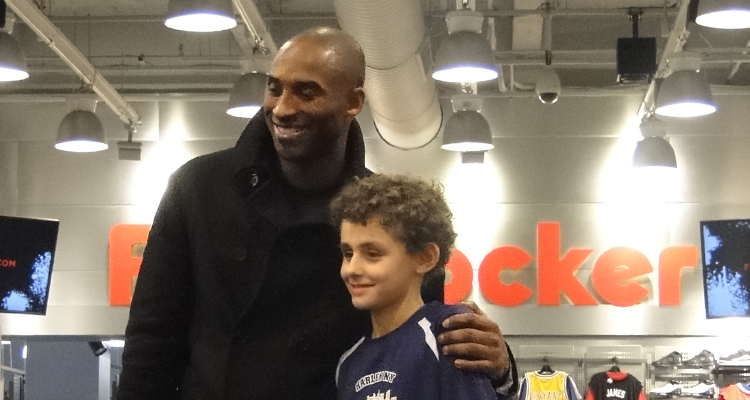Whether or not you are a fan of Kobe Bryant or the LA Lakers, you can’t argue with his talent and remarkable career. He ranks third as an NBA point leader, trailing Kareem Abdul-Jabbar and Karl Malone, and has played an illustrious twenty seasons for the same team—a rare find in sports. When LeBron James said that Kobe Bryant inspired him in his own career, it was just one indication that Kobe has made it to superhero status.
When we witness moments like Kobe Bryant’s fairy-tale final NBA game, we are often transported back to our childhood dreams. As youngsters, the world was a limitless open book where we could be both the author and hero of our own story, no matter if it was ruling a kingdom, soaring in a rocket toward space, flying over tall buildings with our cape fluttering in the wind—or scoring 60 points in the swan song game of our exemplary NBA career.
Along with those adolescent dreams, come heroes.
For kids, sports heroes come with a unique set of expectations. Not only are they larger than life and seemingly indestructible, they are also placed on a pedestal to guide our children’s thoughts, attitudes, and actions. That is a very vulnerable place to be, and the reality is that these heroes are human and will likely fail and disappoint at some point.
So how does a parent help to navigate their children in their estimation of these sports heroes? Here are some suggestions:
Find Heroes Who Have Similar Causes and Beliefs
Fortunately, there are many respectable and charitable sports players out there today. Think about what causes and viewpoints are important for your family. For example, do you know someone who has been impacted by autism? Jordan Spieth, winner of the 2015 Masters Tournament, has a foundation inspired by his autistic younger sister dedicated to helping special-needs youth. If you have a heart for children with Down Syndrome, Albert Pujols, first baseman for the Los Angeles Angels, has established a family foundation benefiting children and families living with Down Syndrome. There are numerous honorable players who are outspoken about their faith, their lifestyles, their personal struggles—finding one who is in line with the morals and behaviors you want to instill in your children is imperative to a healthy and beneficial sports hero alliance.
Know They May Fail, and That’s OK
No matter if we are speaking from a sports performance perspective or from a life perspective, these sports heroes are not like the virtuous and immortal superheroes in the movies. These are real athletes with real physical limitations and temptations. At some point, your child’s hero might disappoint them and perhaps even anger them. This is where sports can play an invaluable role in your kid’s development. A large and influential part of life is failing, falling short of your goals and expectations. It is how an individual responds to those failures that determines whether they are a hero or a coward. No matter how your child’s favorite player responds to these missteps, either positively or negatively, you still have a learning opportunity to teach your children the appropriate way to respond in the specific situation, teaching them a life lesson which will benefit them for the rest of their lives.
Teach Individualism, Not Imitation
Another lesson expanding well beyond the world of sports is the essential knowledge and realization that your child should not “want to be” their sports heroes. At younger ages with expansive imaginations, sometimes reality is hard to separate from fantasy. However, your responsibility as a parent is to nurture the feelings of self-worth independent of their heroes. Your children have value and merit as themselves alone; in fact, they are just as amazing (in your eyes, more so) than anyone they will ever see on ESPN. Their focus needs to be on being the best kid they can be, knowing that trying their best is the ultimate goal and not being “just like” anyone else when they grow up.
As Kobe Bryant himself said, “I don’t want to be the next Michael Jordan, I only want to be Kobe Bryant.”
After such an exhilarating and emotional performance by the Black Mamba, it’s hard, even for adults, to not put Kobe Bryant on superhero status. However, for the sake of our children, we must be careful to discerningly navigate our way through these sports legends, being intentional to transform these heroes into rewarding and educational life lessons.





































